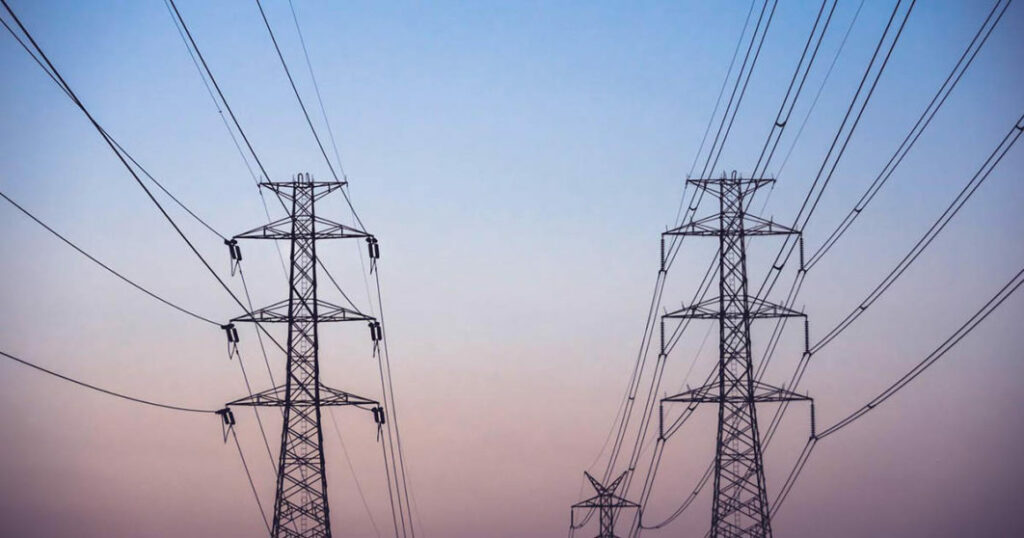A report by the Nigerian Association for Energy Economics has disclosed that the total installed power generation capacity of about 13,000 megawatts in Nigeria can only give a healthy life to 632.4 people out of the over 200 million citizens across the country.
Although Nigeria has an installed power generation capacity of about 13,000MW, it, however, generates far less than that figure daily.
Industry figures obtained from the Federal Ministry of Power on Friday, for instance, showed that power generation on the national grid that day (Friday) was 3,945.8MW, a far cry from the 13,000MW installed capacity.
This also implies that the number of persons to enjoy health living in Nigeria with this quantum (3,945.8MW) of electricity generation is far lower than the 632.4 figure captured in the NAEE’s report.
The NAEE, an affiliate of the International Association for Energy Economics, disclosed that findings showed that about 75 giga-joules/year, which translates to 20.55MW, was the quantum of electricity required to have a healthy life.
In the report, which was presented by the President, NAEE, Prof. Yinka Omorogbe, at the just concluded 15th NAEE/IAEE Conference at the Petroleum Technology Development headquarters in Abuja, it was stated that while Americans used four times as much energy needed for healthy living, Nigerians hardly received energy.
The report read in part, “Americans use four times as much energy as needed to have a good and healthy life. The magic number is 75 giga-joules a year (20.55MW/20,555.556kwh). Americans use 284 giga-joules a year.
The NAEE, an affiliate of the International Association for Energy Economics, disclosed that findings showed that about 75 giga-joules/year, which translates to 20.55MW, was the quantum of electricity required to have a healthy life.
In the report, which was presented by the President, NAEE, Prof. Yinka Omorogbe, at the just concluded 15th NAEE/IAEE Conference at the Petroleum Technology Development headquarters in Abuja, it was stated that while Americans used four times as much energy needed for healthy living, Nigerians hardly received energy.
The report read in part, “Americans use four times as much energy as needed to have a good and healthy life. The magic number is 75 giga-joules a year (20.55MW/20,555.556kwh). Americans use 284 giga-joules a year.
“Nigeria’s total installed capacity of 13,000MW can only give 632.4 people a good and healthy life. There are 200 million people in Nigeria.”
Power generation in Nigeria has been abysmal for years, fluctuating between 3,000MW and 4,000MW despite the privatization of the sector in November 2013.
The country’s power grid has also been characterised by incessant collapse. The grid has collapsed about since times this year. Its latest collapse was recorded on Wednesday.
Recall that the Federal Government on Friday had commenced “a full-scale investigation” to establish the cause of the national electricity grid collapse which occurred on Wednesday and caused blackouts nationwide.
The report stated that though engineers from the Transmission Company of Nigeria started grid restoration after the incident, industry figures seen on Thursday showed that power generation on the grid crashed from over 3,900MW to 3MW during the collapse.
Proffering measures to help mitigate the power supply quagmire in Nigeria, the NAEE in its report stated that renewables were probably the primary hope for about 50 per cent of Nigerians, as it presented great potential for off-grid communities in the country and other African nations.
“Decisive action is needed to voice access to clean energy for those presently living without it,” the NAEE stated.
It added, “Energy access should be just, inclusive and equitable, with no one left behind.”
In his submission on Nigeria’s energy situation, the Executive Secretary, PTDF, Bello Gusau, stated that Nigeria was faced with numerous challenges resulting from the impacts of climate change.
He, however, noted that country was taking measures to manage this challenge as well boost its energy supplies to citizens.
“And one of the most important steps the present administration took towards the actualization of this transition was the declaration of a ‘Decade of Gas’ in 2020,” Gusau stated.
He added, “This laudable initiative serves as an opportunity to optimise the nation’s gas derivatives and deepen its market participation via infrastructure development and diversify into petrochemical products.”
The PTDF boss further stated that capacity building had an important role to play in this upward transition from petroleum to gas and ultimately to renewable energy.
“Consequently, the PTDF has been in the forefront of developing Nigerian human capacities for the petroleum and gas industry in this regard,” Gusau stated.
